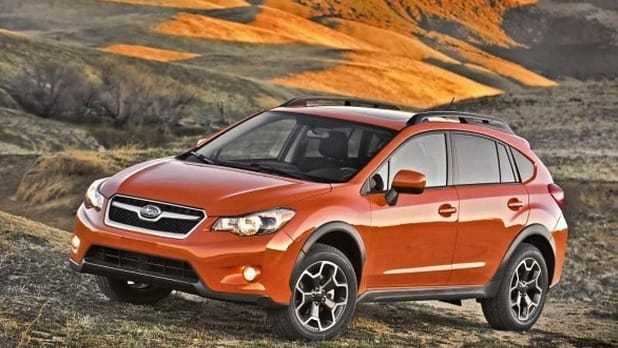Lease or Buy a Company Car in Switzerland?

If you're looking to get your business on the road, you'll inevitably face the important decision of whether to lease or buy your business car. This decision is more than just a financial consideration; it's a strategic decision that can impact a company or SME's operations, tax obligations and long-term financial planning.
As both options offer different benefits and limitations, it is especially important for small and medium-sized businesses in Switzerland to understand the intricacies of both options in order to optimise their resources and align their vehicle procurement with overall business objectives.
In this blog post, gowago looks at the pros and cons of leasing and buying to help Swiss companies make this important decision.
| Purchase company car | Leasing company car | Property | Full ownership | The car is returned at the end of the leasing contract | Use | No restrictions on mileage or usage | Selectable annual kilometre packages | Resale/end of contract | Freedom to sell whenever you want, but also corresponding administrative effort | The car is simply returned at the end of the contract or can be taken over under certain circumstances |
|---|---|---|
| Tax deductions | Possible deductions | Leasing instalments are tax deductible for companies |
| Wear and tear | No additional costs for wear and tear, but maintenance must be organised by yourself | Maintenance is often included. Often new cars or young used cars that are cheap to maintain | Initial costs | High initial costs, as the car has to be fully purchased | Low initial outlay, only monthly payments | Depreciation | High depreciation handled by owner, especially for new vehicles | Depreciation is covered by the leasing instalment, car can be returned at the end of the contract | Flexibility | Less adaptability to changing business needs | Possibility to switch to newer/different models on a regular basis | Maintenance | Full responsibility for repairs and maintenance | Often included | Insurance | Can be selected individually; fully comprehensive cover recommended | Comprehensive insurance is mandatory |
Buying a company car: Advantages and disadvantages
When it comes to getting a company car in Switzerland, buying a company car is one option. However, this approach comes with a number of advantages and disadvantages.
In Switzerland, buying a company car comes with certain advantages, especially for companies that require customisation of the car or for whom a mileage limit would be restrictive. This is particularly advantageous for companies that need to travel a lot. The resale option offers financial flexibility but also administrative effort.
However, the purchase requires a significant upfront investment, which should be an important factor for budget-conscious companies. The depreciation of new vehicles is also a challenge and affects the long-term financial value. In addition, full responsibility for maintenance and repairs creates ongoing costs.
It is important for SMEs to balance these aspects and ensure that their vehicle investment is in line with overall business objectives and financial planning.
Here is a summary of the main advantages and disadvantages of buying a company car:
Advantages:
- Ownership: You get immediate and complete ownership and can customise and modify the car.
- Use: No restrictions on mileage or intended use.
- Resale value: The freedom to sell the car whenever you want but also the hassle involved
Disadvantages:
- Early costs: Higher initial investment due to buying the full value of the car.
- Depreciation: Significant depreciation, especially for new vehicles.
- Flexibility: Less adaptability to changing needs or preferences.
- Maintenance: Full responsibility for all repairs and maintenance costs.
Learn more about the Gowago Business Leasing
Leasing a company car: Advantages and disadvantages
Leasing a company car is becoming increasingly popular in Switzerland as it offers flexibility and tax advantages. It is particularly interesting for those who do not own a vehicle but only want to use it. However, there are also some restrictions with leasing. For companies considering this option, it is important to know the pros and cons.
Leasing a company car in Switzerland offers significant advantages, such as lower acquisition costs compared to buying, making it a financially affordable option for many companies. The capital that your company does not use for the vehicle can then be invested in other areas of your business.
Leasing offers remarkable flexibility and allows companies and SMEs to regularly update their fleet with the latest models - an important advantage in today's rapidly evolving automotive market. This is also an advantage should the company require different types of cars due to changing needs. In addition, leasing costs are tax deductible for companies, which is a major tax advantage.
Leasing does not lead to ownership, i.e. there is no equity in the vehicle at the end of the lease. There are also mileage restrictions, which can result in payments if exceeded, and leasing usually requires comprehensive insurance cover, which leads to higher operating costs.
Here is a brief overview of the advantages and disadvantages of leasing a company car:
Advantages:
- Lower initial costs: Generally, the initial cost is lower compared to buying.
- Flexibility: The ability to change cars regularly is ideal for those looking for the latest or different models.
- Tax benefits: Leasing instalments are tax deductible for businesses. This is a particularly attractive way to save on your company's mobility.
- Maintenance: Can include servicing and maintenance, which reduces administration costs.
Disadvantages:
- No ownership: No equity as the car is returned at the end of the lease term.
- Mileage restrictions: Leasing contracts come with kilometre limits, payments are incurred if these are exceeded.
- Higher insurance costs: Requires fully comprehensive insurance (which would be advisable for a new car anyway).
Discover the Gowago Business Leasing
Leasing vs. buying a company car in Switzerland
In Switzerland, the decision to lease or buy a company car is of central importance and influences both the immediate financial situation and the long-term strategic positioning of a company.
Leasing is a cost-effective alternative with lower upfront costs, offering flexibility in fleet management and tax deductions, which is beneficial for companies that want to preserve their capital or frequently renew their vehicles.
However, the lack of ownership rights and mileage limitations of leasing do not suit every business model. In contrast, buying a vehicle leads to ownership despite the higher purchase cost and offers the freedom to customise and use the vehicle without restrictions.
This option is more suitable for companies where customisation of the vehicle and high mileage are important.
Swiss companies need to consider these factors in their own operational context. The decision affects not only immediate expenditure, but also broader aspects such as asset management, tax strategy and operational flexibility.
A well-thought-out decision can significantly influence a company's resource optimisation, budgeting and strategic direction in the ever-evolving Swiss market.


